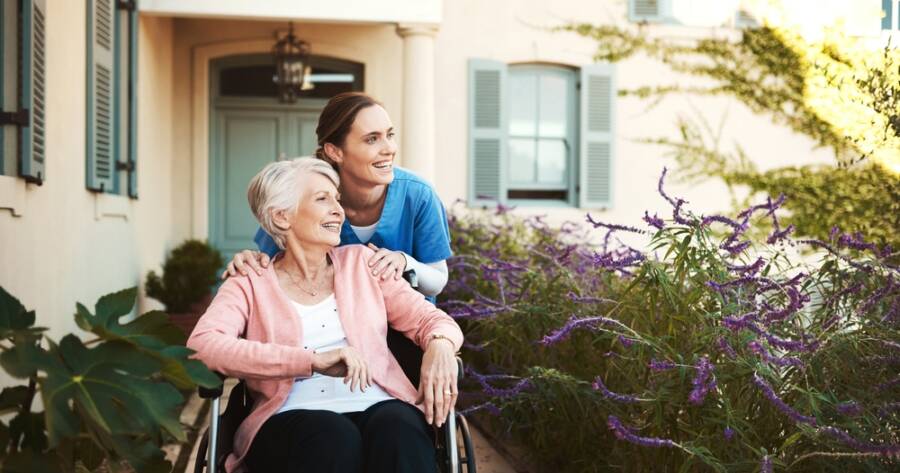Private caregiving offers a compassionate and tailored approach that addresses the unique needs of each individual. Unlike traditional care options, private caregivers provide one-on-one attention, fostering a nurturing environment where personal bonds and trust can flourish.
What is Private Caregiving?
Private caregiving refers to the provision of non-medical assistance and support to individuals who require help with activities of daily living (ADLs) and instrumental activities of daily living (IADLs). These services are typically provided in the comfort of the individual’s own home, allowing them to maintain their independence and familiarity while receiving the necessary care.1
Private caregiving encompasses a wide range of services, including personal care (bathing, dressing, grooming), meal preparation, medication management, transportation, and companionship. It also involves providing emotional support and assistance with cognitive tasks, such as memory stimulation and cognitive exercises.
Private caregiving has become increasingly prevalent in recent years due to the rising number of elderly individuals and the growing demand for personalized and compassionate care. It offers a flexible and customizable approach to caregiving, allowing individuals to receive the specific services they need while maintaining their independence and dignity.
Personalized Caregiving: A Helping Hand
Personalized caregiving goes beyond providing basic care services; it involves tailoring the care plan to the unique needs, preferences, and abilities of each individual. This approach recognizes that every individual has different requirements and that a one-size-fits-all approach is not effective.
Personalized caregiving involves conducting a thorough assessment of the individual’s physical, cognitive, and emotional needs. Based on this assessment, a customized care plan is developed in collaboration with the individual, their family members, and healthcare professionals. This plan outlines the specific services that will be provided, the frequency of care, and any special considerations that need to be taken into account.
The benefits of personalized caregiving are numerous. It improves the quality of life for individuals receiving care by ensuring that their specific needs are met. It also reduces the burden on family caregivers, who may not have the time, skills, or resources to provide the level of care that is required.
Tailored Care Plans for Your Loved One
Tailored care plans are essential for ensuring that individuals receive the right care at the right time. These plans are developed by a team of healthcare professionals, including physicians, nurses, and social workers, in collaboration with the individual and their family members.2
Tailored care plans take into account a variety of factors, including the individual’s medical condition, functional abilities, cognitive status, and social and emotional needs. The plan outlines the specific services that will be provided, the frequency of care, and any special considerations that need to be taken into account.
Regular monitoring and evaluation of the care plan are crucial to ensure that it remains effective and responsive to the individual’s changing needs. This involves ongoing communication between the care team, the individual, and their family members to identify any changes in the individual’s condition or preferences and to make necessary adjustments to the care plan.
Learn More About Private Caregiving
Private caregiving is a valuable resource for individuals who need assistance with activities of daily living and instrumental activities of daily living. It offers a flexible and customizable approach to caregiving, allowing individuals to receive the specific services they need while maintaining their independence and dignity.
If you are considering private caregiving for a loved one, there are several resources available to help you get started. You can contact your local Area Agency on Aging (AAA) or Department of Social Services for information about available services and resources. You can also talk to your loved one’s doctor or other healthcare provider for recommendations.
